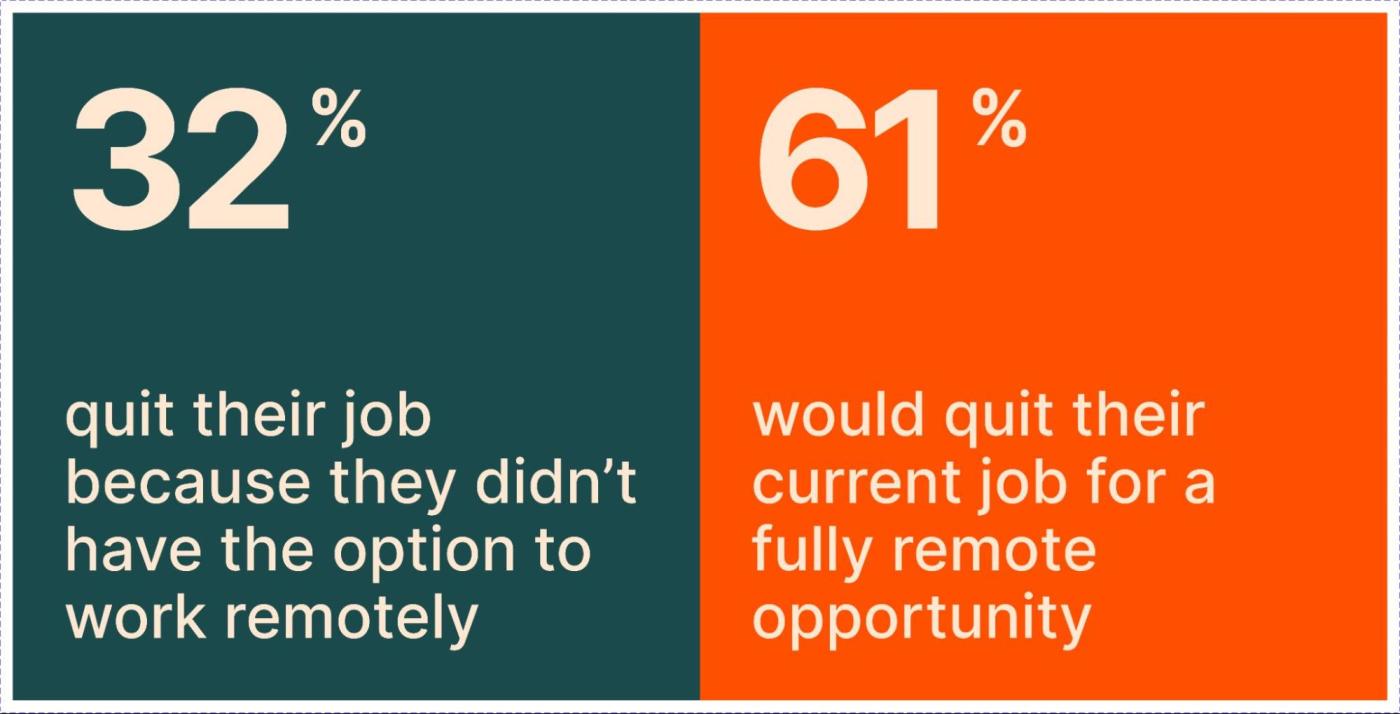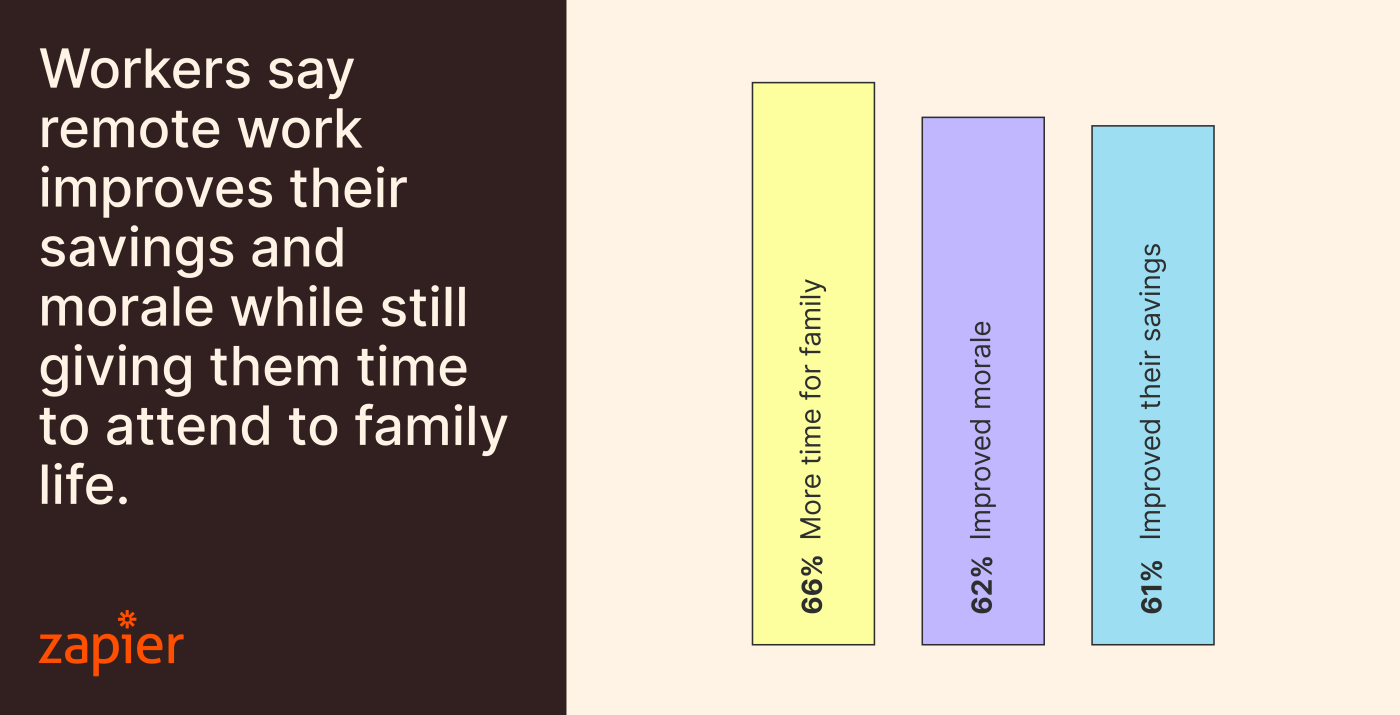61% of Americans would quit their current job for a fully remote opportunity, new survey shows

In the summer of 2021, a record 4.3 million Americans voluntarily quit their jobs in what some are calling the beginning of the “Great Resignation.” It was one of the highest “quit rate” ever recorded since the government started keeping track two decades ago.
So, why are Americans leaving their jobs in droves and refusing to back to work? Experts offered many insights including workers not wanting to go back to the office due to the fear of getting sick, flexibility, and work-life balance. Other workers also quit their jobs because their needs weren’t being met by their employers.
The pandemic impacted companies and employees across every sector in unique ways. If there is one lesson we learned from this pandemic, it is that many workers prefer the flexibility of working remotely to getting stuck in traffic for about two to three hours every day. However, by shifting to remote work, Americans were faced with a challenge: will this make or break my work-life balance?
Before the pandemic began in February 2020, only about 2 percent of the U.S. workforce was working remotely, by May 2020, that number had jumped to close to 70 percent. According to a February report from Forbes, it is projected that 25% of all professional jobs in North America will be remote by the end of 2022, and remote opportunities will continue to increase through 2023.”
Forbes is not alone. According to a new report by automation platform Zapier, 61% of Americans would quit their current job for a fully remote opportunity. The remote work data show that more employees are working remotely than ever before—and they want to keep it that way.
Going into the office is a deal-breaker for millions of US workers
American knowledge workers want to work remotely—and they’re willing to quit their job to do so. 32 percent of survey respondents say they’ve already quit a job because they didn’t have the option to work remotely, and 61 percent say they would leave their job if they had the option to accept a fully remote opportunity.

That’s not all. 64 percent of survey respondents said that remote work has made them more productive. This is consistent with how workers felt at the beginning of the pandemic when many people transitioned to working from home overnight.

Overall, respondents said:
-
91% of respondents agree that the ability to work remotely and have flexible hours contributes to their happiness at work
- The majority of respondents agree that work-life balance is the most important factor when considering a new job
- 50% of respondents aged 45 plus feel being recognized publicly or privately by management contributes the most to their happiness at work
- For Gen Z (44%) deem feeling cared for by their company as important
-
Remote work has improved their savings (61 percent)
-
Remote work has given them the flexibility to attend to family life (66 percent)
-
Remote work has improved their morale (62 percent)

Almost all the survey respondents (96 percent) associate work-life balance with their happiness at work—just surpassing the next highest perk (flexible hours at 91 percent). You can read the full report at: https://zapier.com/blog/future-of-work-report/

